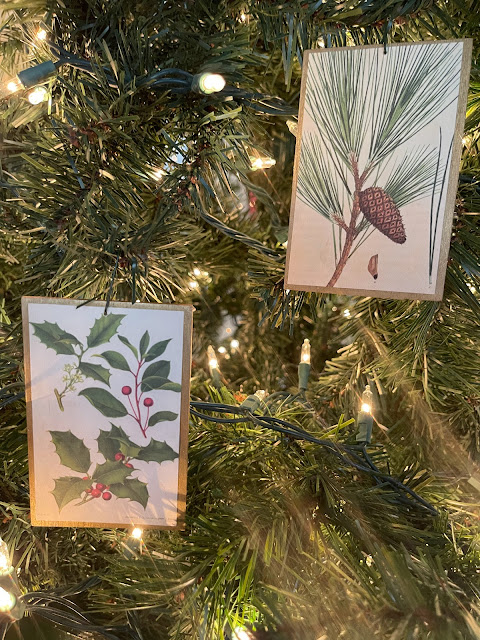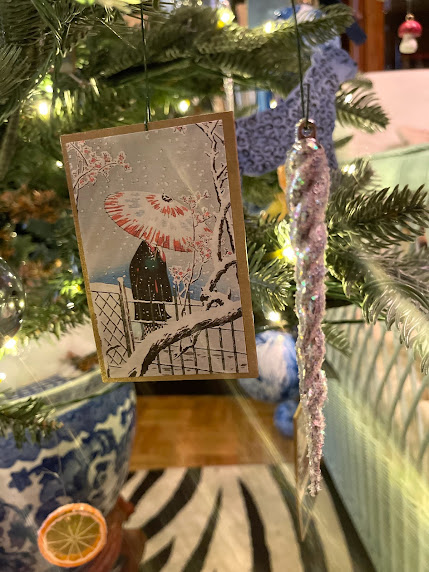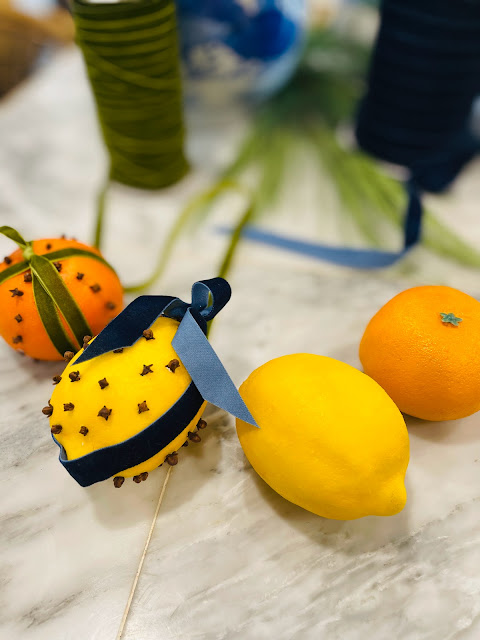Clove studded citrus, or pomanders, has become very popular the last couple of years but it is really a very traditional, classic and old tradition. My mother always made them at Christmas and we would help push the cloves into the oranges after she made the holes with a toothpick. Citrus like oranges, lemons and loquats were always a part of our lowcountry holidays and the tradition continued after we moved to Washington DC and often visited Williamsburg. 
From Wikipedia: A pomander, from French pomme d'ambre, i.e., apple of amber, is a ball made for perfumes, such as ambergris (hence the name), musk, or civet. The pomander was worn or carried in a vase, also known by the same name, as a protection against infection in times of pestilence or merely as a useful article to modify bad smells. The globular cases which contained the pomanders were hung from a neck-chain or belt, or attached to the girdle, and were usually perforated in a variety of openwork techniques, and made of gold or silver. Sometimes they contained several partitions, in each of which was placed a different perfume.
The term "pomander" can refer to the scented material itself or to the container that contains such material.[2][3][4] The container could be made of gold or silver and eventually evolved to be shaped like nuts, skulls, hearts, books and ships. Smaller versions were made to be attached by a chain to a finger ring and held in the hand. Even smaller versions served as cape buttons or rosary beads.[5]
A pomander can be a bag containing fragrant herbs and might be viewed as an early form of aromatherapy. Pomanders can be considered related to censers, in which aromatics are burned or roasted rather than naturally evaporated.
Pomander Balls in America
It’s in the 18th century we do see pomander balls as we know them today. However, it should be noted these were a luxury. Most founding families would not have wasted perfectly good oranges on simple decoration. Not when there was scurvy to keep at bay during those long winter months. Having said that, one could find a pomander ball in colonial homes in baskets or cupboards and in a handkerchief for a traveler to smell on the road (again, to cover any nasty smells in the street…and oh, were there nasty smells).In the Victorian era, pomander balls were a staple in many American homes and a lovely tradition families looked forward to creating.
I have to agree with the founding families - I am funny about using food that cannot be eaten as decoration (I'm not as concerned about candy like on gingerbread houses.) I have just worked with too many populations who are food insecure so I choose to go faux with my citrus plus using plastic fruit that someone else tossed out and I thrifted is recycling at its best!! You do you - no judgement here.
If you want to make faux fruit pomanders that will last for years this is what you need:
Faux oranges and lemons. I happened to thrift two huge bags of faux/plastic citrus - one bag of oranges and one bag of lemons. Each less than $4.00.
Whole cloves - easily found in the spice section at any grocery store.
A drill with a small bit. Just match the drill bit size to the size of your cloves. You want a snug fit but not so tight that you break your cloves when inserting them.
Glue that dries clear (optional)
Thin ribbon of your choice. I used velvet. (optional)
I have a video on Instagram showing the steps but you simply drill holes into your fake fruit using a small bit and then gently push the cloves in. I put a dab of glue on my cloves but it is not necessary if you want to skip that step.
You can add as many cloves as you wish and even create designs if you wish. If you plan to tie them with ribbon be sure to take that into consideration when placing your cloves.
The cloves smell nice and these will last for years without trying to figure out how to store real, cloved fruit.
I have another "faux fruit' Christmas decoration DIY here that is quick and easy too!!
















